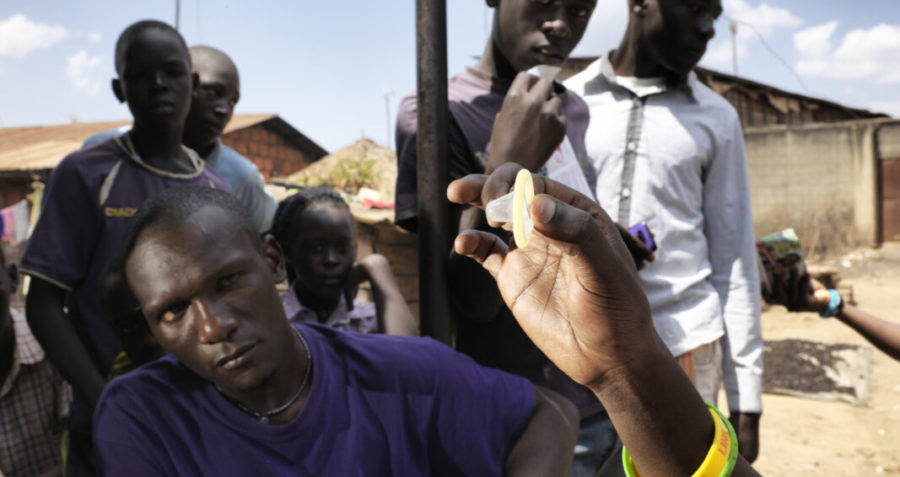Integrating SRHR/HIV services into community dialogues
 © Frontline AIDS/Peter Caton/2015
© Frontline AIDS/Peter Caton/2015
Key information
- Organisation: Alive Medical Services
- Country: Uganda
- Region: Eastern and southern Africa
- Stage of innovation: Stage 3: Pilot
- Start date: Mar 2018
- End date: Mar 2020
- Type of innovation: Services delivery innovation: new or different way of providing a service
- Budget: US$124,938 (annual)
- Funded by: EJAF
Summary of intervention
In Uganda, people from marginalised groups are often reluctant to use HIV and SRHR services due to the stigma and discrimination they face. Yet they are often the people who need these services the most.
To address this, AMS invites marginalised people to attend peer-led community discussions in host-spots and drop-in centres alongside free HIV/SRHR services (e.g. HIV testing, starter packs for anyone with a positive HIV screen, condoms, lubricants, PrEP, hepatitis B testing and vaccination, STI screening and treatment, and family planning services). Here, they can gain an understanding of how the HIV epidemic affects their community and discuss ideas to improve services.
Between January 2019 and January 2020, these integrated outreaches supported 719 men who have sex with men, 284 transgender people, 437 lesbian women, and 1,101 sex workers. The outreaches have not only increased access to community-based HIV/SRHR services but confidence in clinical services: 95% of people attending the events have gone on to visit friendly clinics for further treatment and support.
next steps
- The Ugandan government has embraced this innovation and is working with AMS to roll this service out nationally. This support will help to sustain these activities and increase their reach and impact.
- The pilot currently operates in the districts of Kampala, Mukono and Wakiso and there are plans to establish the model in other districts.
- Plans are being developed to share the model with more health facilities and to work with them to improve their key population services.
- As part of this work the Ministry of Health has asked AMS to support it in finalising guidelines on differentiated HIV prevention, care treatment and support guidelines for key populations, which will also help to improve the HIV/SRHR services marginalised people can access. AMS has been meeting with the Ugandan government and the technical working group every month since February 2020 to support this and other innovations.

